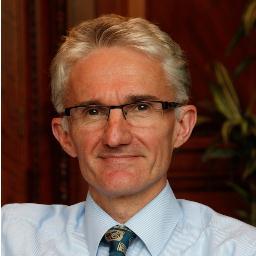How many of these 3 statements do you agree with?
 “By almost any measure, the world is better than it has ever been.”
“By almost any measure, the world is better than it has ever been.”- “By 2035, more than 70% of countries will have a higher per person income than China does today. Nearly 90% will have a higher income than India does today.”
- “By 2035, there will be almost no poor countries left in the world.”
I’ve been asking these questions at government and private sector events I’ve been doing recently. The audience I spoke to last week of around a hundred senior staff at one of the country’s best known and most successful professional services businesses is typical: none of them agreed with all 3 statements.
Which is interesting, to me anyway, because they are all predictions made by someone generally regarded as smart, successful and not particularly given to hyperbole.
Someone who made something I bet you all use every day.
He has just published a new analysis of how his predictions will come about. The answer is mostly about technology. Technology to eradicate killer diseases. To enable Africa to feed itself. To give everyone access to financial services through mobile banking. And for everyone to get better software to revolutionise education and learning.
If you haven’t guessed already, the link to my twitter feed at the end of the blog will tell you who it is and more about why he thinks what he does. It’s a great quick read for anyone suffering from the January blues and wanting reassurance that things can get better.
I find this interesting partly because DFID is very engaged in supporting the development of many of the key technologies that will transform the prospects for the ultra-poor elsewhere in the world. (Mobile banking, for example, was first developed through a grant we gave Vodafone in Kenya more than a decade ago).
But what also intrigues me is the belief that if technology can transform so dramatically the prospects for the poorest people in the poorest countries, it can also help us in the UK Civil Service tackle the challenges we face.
I’ve said this before, but I don’t buy into the lazy media caricature that the Civil Service is hopeless at digital. The Lowcock family’s experience of accessing public services online over the last year has been consistently great: faster, better and easier than some things we get from commercial sources. Our top hits include car tax, income tax self assessment, student loans (where the greyer members of the family raised their eyebrows over quite how soon the student got the money), joining the electoral register, new passports and, in the case of the 19 year old, two new driving licences (his motto seems to be if you can lose it once, you can lose it twice, and I am afraid DVLA’s stellar efficiency reassures him).
I also see a little of technology in public services through the role I have as chair of the governing body at one of the UK’s outstanding schools for severely autistic young people. Creative app designers and talented and committed teachers are developing all sorts of new tablet tools to help students communicate and engage with the world, opening up new vistas for people who in the past typically lived closed, frustrating and much more limited lives.
What I do think, though, is that we are just in the foothills of exploiting all the potential of technology for doing what we do faster, better (including in how we join up across government), and, especially, cheaper.
Jeremy talked about this in his digital blog last September, especially focusing on online services for the public. But there is also a crucial agenda for how we work inside the civil service. At John Manzoni’s Corporate Management Board this week we had a good conversation about how we achieve by 2020 the vision of joining up across government on IT: inter-connected and inter-operable platforms and services, which are cheaper to run, automate boring and routine tasks and provide us all with better tools to do the things that really add value and make our jobs more worthwhile and rewarding.
Inspired by that discussion, I have a forecast of my own. When we look back in 2020 at what we have achieved on digital in the course of the next Parliament, we will be amazed at what we still did in 2015. And, like the disappearance of Tippex and carbon paper as key technologies, which they were when I first became a civil servant, we won’t miss the things that go.
Follow Mark Lowcock: @DFID_Mark

2 comments
Comment by Alexis posted on
The bit about technology to enable Africa to feed itself reminds me of The Hunger Games. What use is technology without social justice? Africa has gold, diamonds, oil and a wealth of natural resources. Will technology end the exploitation and corruption that keep Africa poor?
Comment by Muqbool Khan posted on
Just 20 years ago, hardly any Government services were online. Fast forward another 10 years and it is hard to foresee any that are not.
We are at a crucial juncture where we have to build those bridges and see where to place them.
And let's please remember the citizen at the centre of it all.